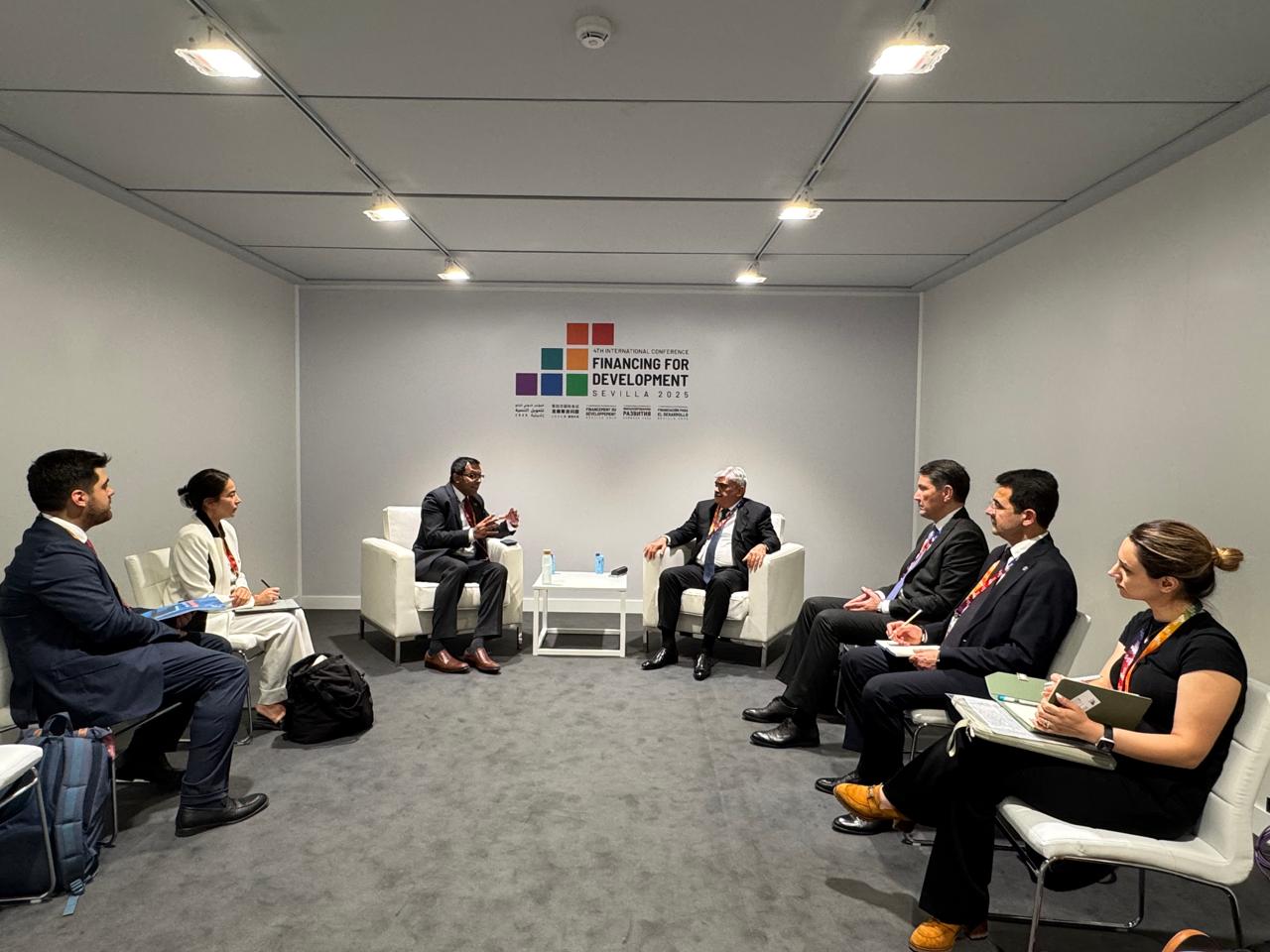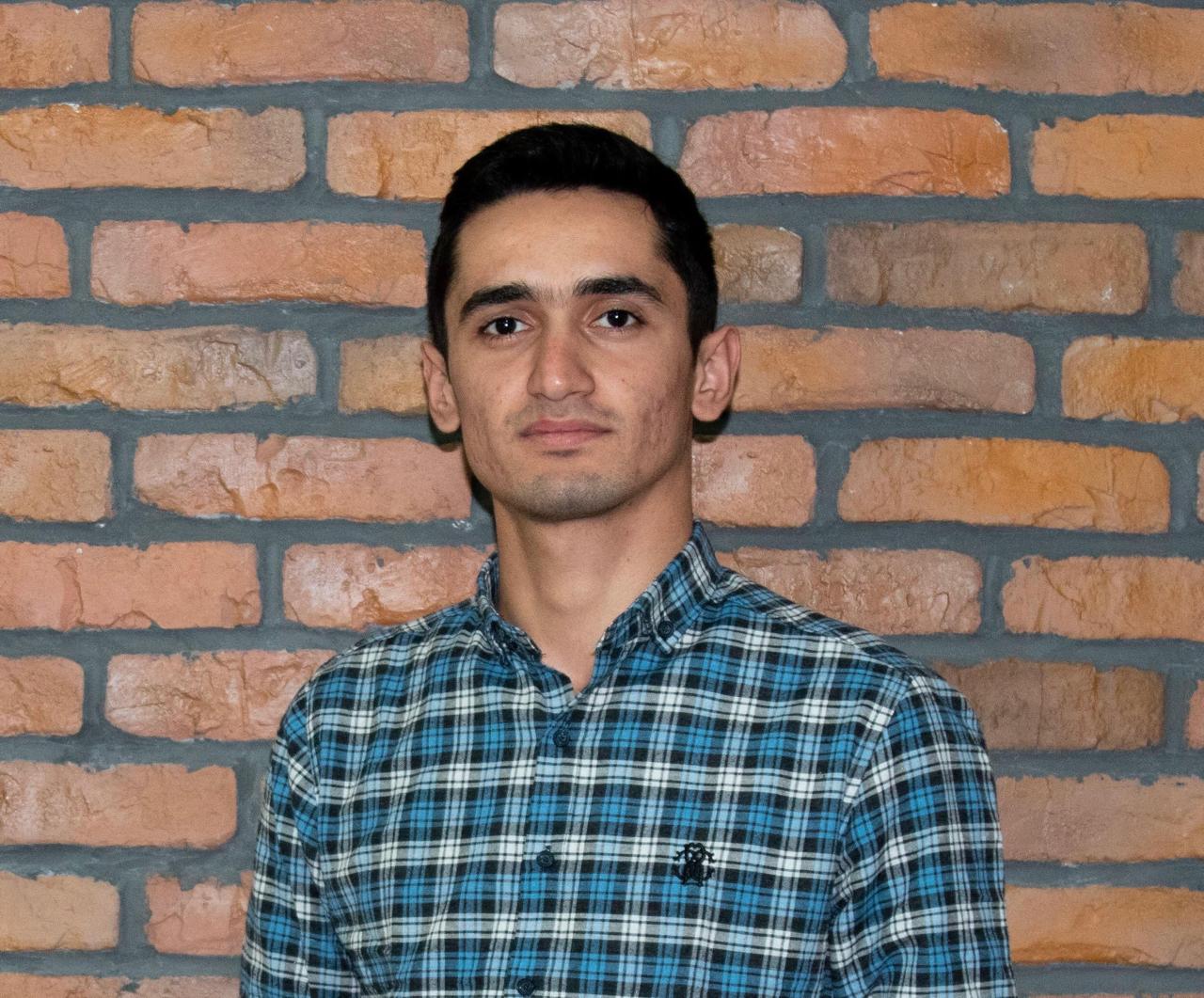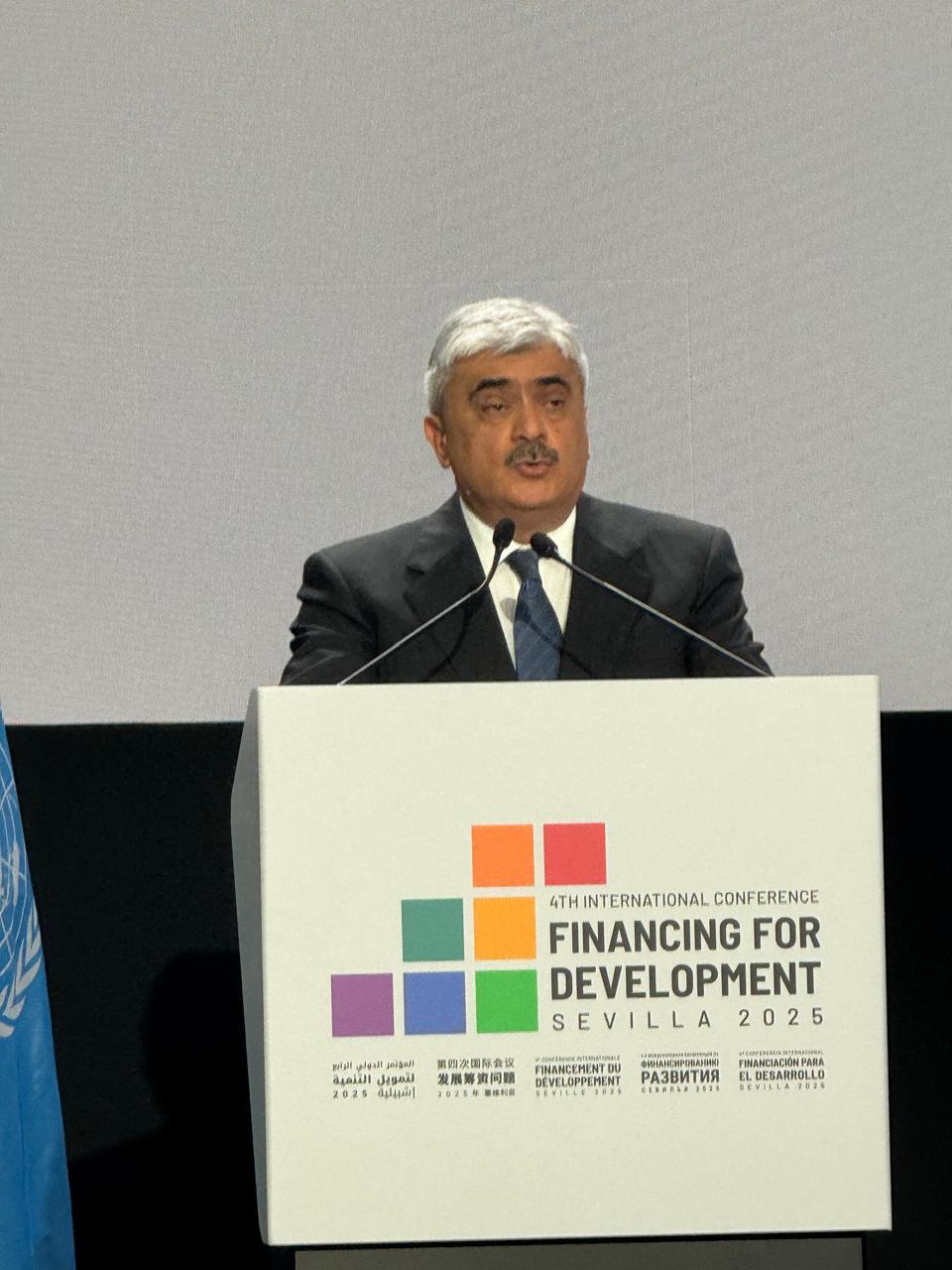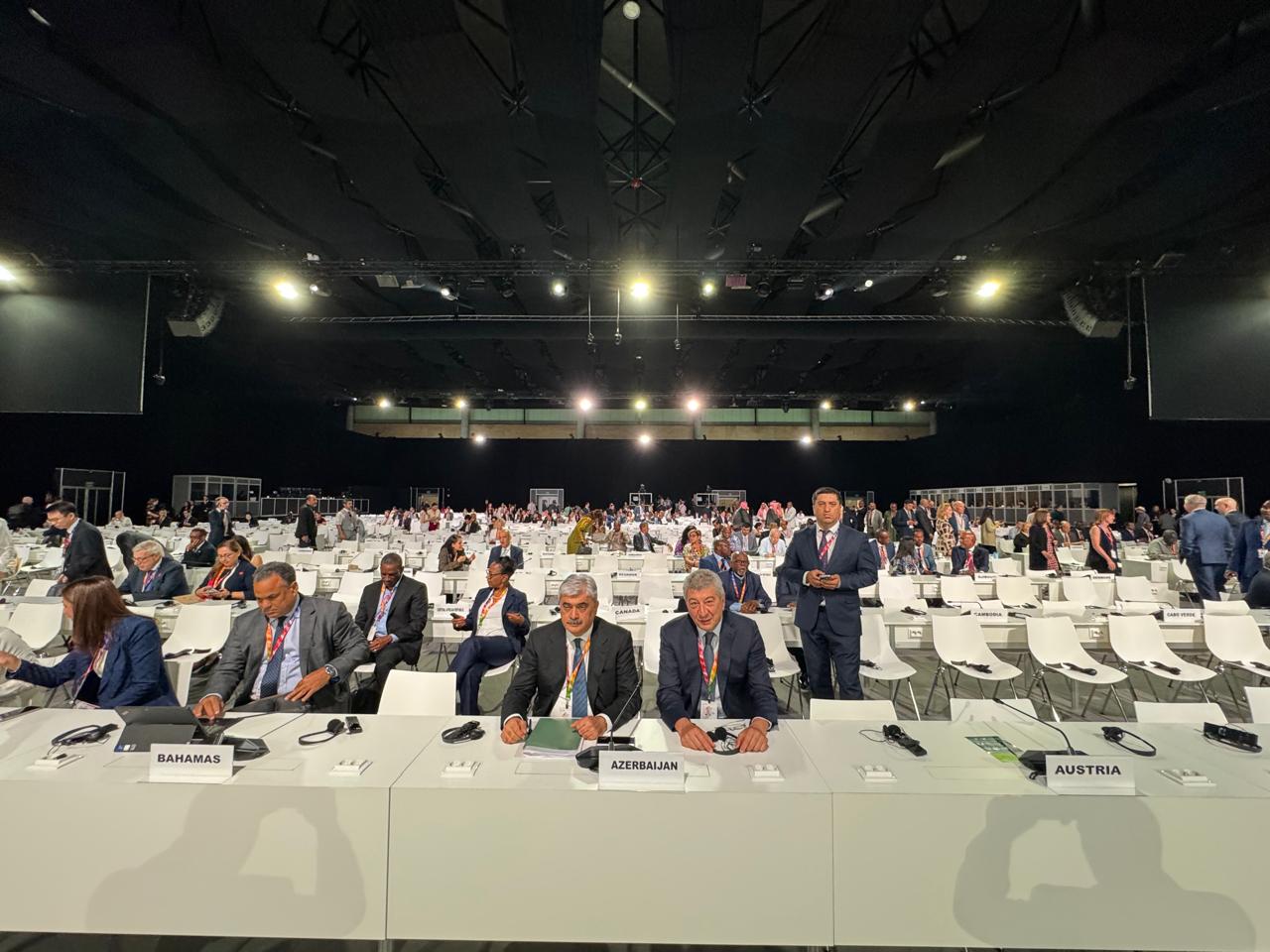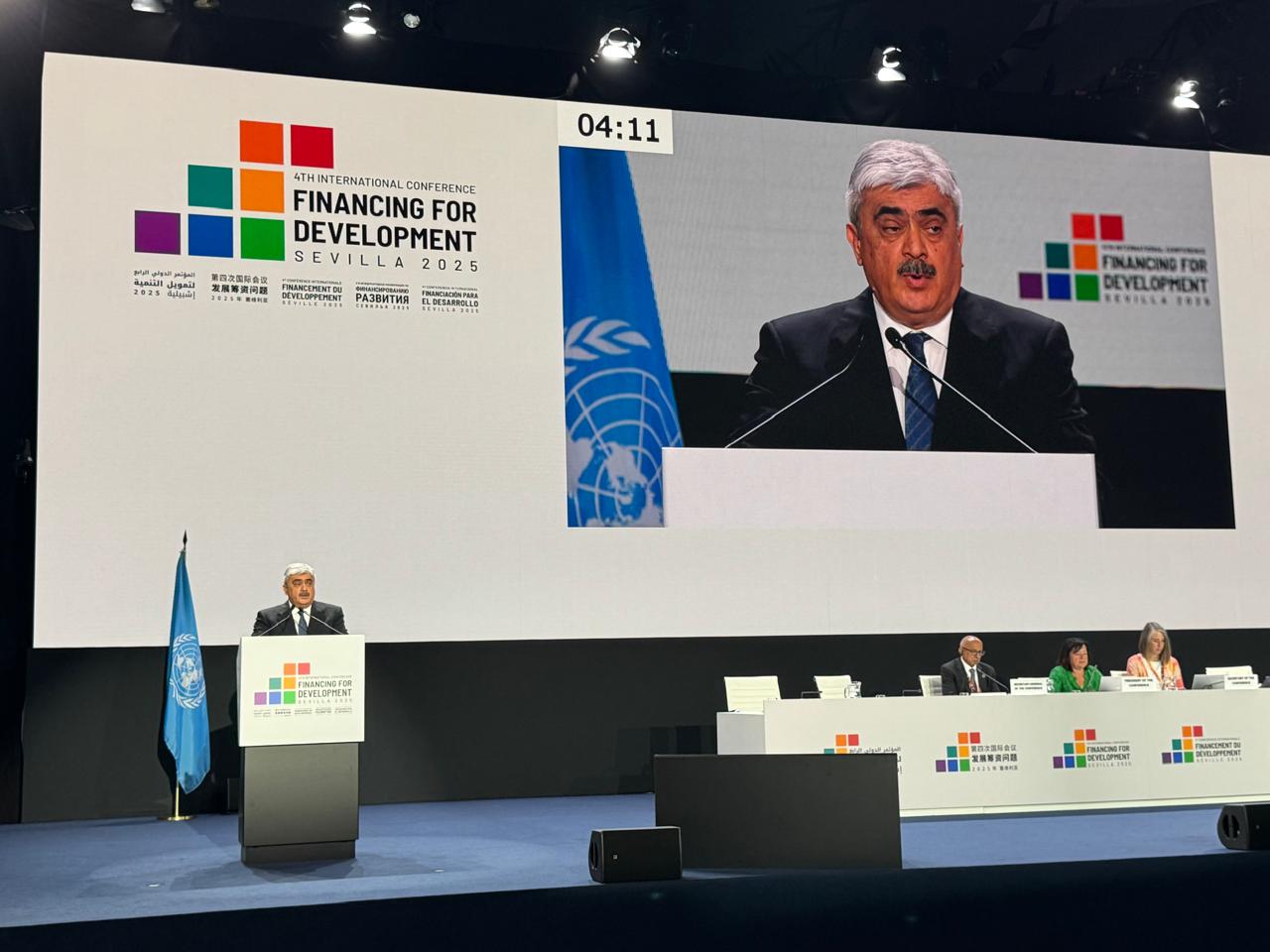BAKU, Azerbaijan, July 1. Azerbaijan continues to play an active role in supporting international development despite the significant financial burden due to the restoration of its liberated territories, the country's Deputy Prime Minister Samir Sharifov said at the 4th International Conference on Financing for Development, Trend reports.
He noted that Azerbaijan has provided more than $350 million in aid to developing countries over the past five years.
Sharifov emphasized the importance of the event dedicated to financing sustainable development and provided information on the measures Azerbaijan has implemented since the third conference to advance the "2030 Agenda for Sustainable Development.
It was pointed out that Azerbaijan is among the top five countries worldwide—and the first in its region—to submit its 4th Voluntary National Review on the implementation of the Sustainable Development Goals (SDGs), and through initiatives such as the Integrated National Financing Frameworks and the SDG Investor Map, Azerbaijan has successfully aligned over 80 percent of its consolidated budget expenditures with the SDGs.
He also noted that Azerbaijan is among the first five countries globally, and the first in its region, to submit its fourth Voluntary National Review on the implementation of the Sustainable Development Goals (SDGs). Through initiatives such as the Integrated National Financing Framework and the "SDG Investor Map," Azerbaijan has aligned over 80 percent of its consolidated budget expenditures with the SDGs.
Sharifov highlighted that the conference is taking place at a critical time for the international community, amid a shortage of financial resources for development goals. Geopolitical tensions and military conflicts are shrinking the resource base for development financing, while recovery and reconstruction efforts to address the consequences of conflicts create additional pressure on state budgets.
The deputy prime minister articulated that Azerbaijan, having endured Armenian hostilities and experiencing a 30-year occupation of 20 percent of its sovereign territories, initiated the reclamation and revitalization of its liberated regions post-occupation, following the restoration of territorial integrity in November 2020. The Great Return State Program is currently operational to streamline the reintegration of Azerbaijani nationals displaced from these areas back to their ancestral urban and rural locales.
To date, $15 billion from the state budget has been allocated to the program’s implementation.
Sharifov further stated that, according to the assessment of the Azerbaijan Government Commission, the military aggression and occupation caused $150 billion in damage to Azerbaijan.
As more than 15 percent of this damage is related to landmine contamination, President of Azerbaijan Ilham Aliyev decided to designate mine safety as Azerbaijan’s 18th national SDG, a practice recommended to other countries.
Sharifov underscored that climate finance has become a key element of sustainable development.
He noted that Azerbaijan is contributing globally in this area. Specifically, the adoption of a new financial target, known as the Baku Finance Target, at the global climate conference (COP29) held in Baku under the chairmanship of Azerbaijan to achieve the "2030 Agenda for Sustainable Development", thereby increasing the financial assistance intended to be allocated by developing countries to meet the climate change mitigation and adaptation needs of developing countries by up to three times, is of global importance.
In conclusion, Sharifov affirmed that Azerbaijan will continue to actively participate in multilateral cooperation for development and contribute to achieving the SDGs.
On the sidelines of the conference, at the request of the counterpart, the delegation met with Pradeep Kurukulasuriya, Executive Secretary of the UN Capital Development Fund (UNCDF). The meeting discussed potential cooperation opportunities, considering Azerbaijan’s experience as a donor state, its efforts in addressing socio-economic issues, and post-conflict recovery.
The Seville Conference brought together representatives from 164 states and 49 international organizations, marking the fourth major UN event on financing for development, following Monterrey (2002), Doha (2008), and Addis Ababa (2015). Its primary goal is to establish concrete commitments for implementing the UN’s 17 Sustainable Development Goals and to shape a renewed financing framework.
On July 1, the second day of the Fourth International Conference on Financing for Development, held in Seville, Spain, the "Seville Commitment" on Financing for Development was adopted.
Stay up-to-date with more news on Trend News Agency's WhatsApp channel

